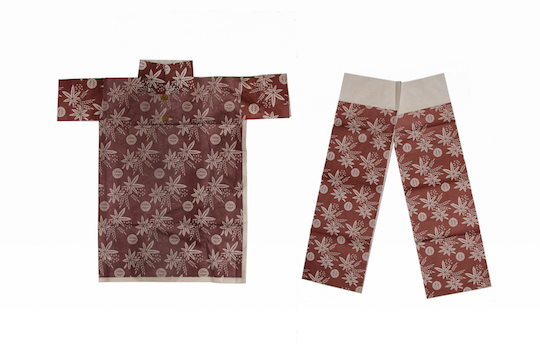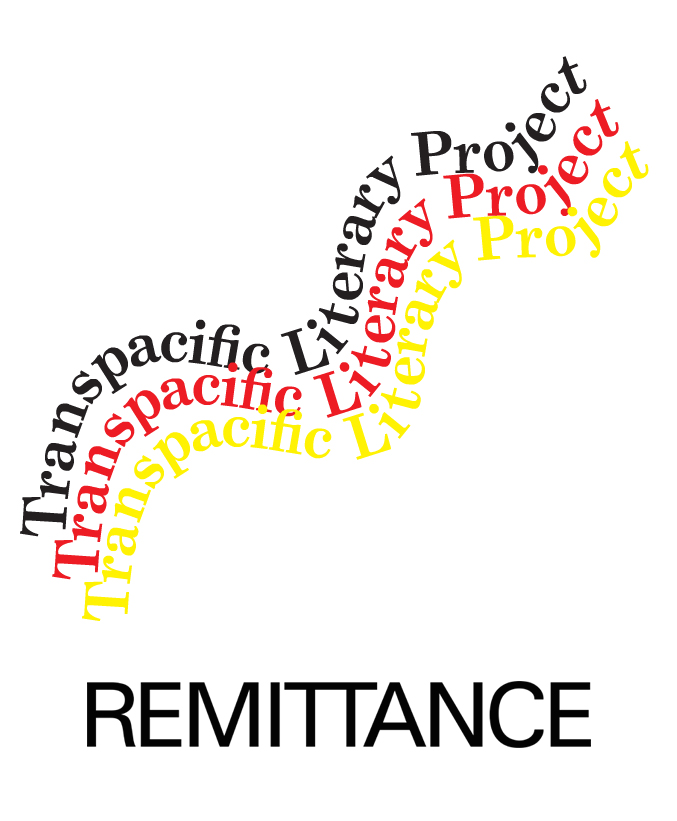We don’t know what we need because we don’t know who we are. We don’t know who we are because we don’t remember who we were.

September 11, 2017

For the next piece in the Transpacific Literary Project’s Remittance portfolio, we are delighted to present an excerpt from Singaporean writer Tania de Rozario’s memoir And the Walls Come Crumbling Down. It’s easy to plan a city, but hard to make one thrive. What are the processes that take place as we move from blueprint to finished building, and what is lost along the way?
Blueprints
During my frequent house-moving, I came to understand how this city has no patience for those who cannot, or do not wish to, acclimatize to change. You like old neighborhoods, un-renovated housing, nature growing wild? Good luck. You want to live a simple life outside of checks and balances? Just try. Technology will urge itself into your pockets. Highways will encroach upon your gardens. Luxury housing will impress itself upon your land and upon the cemeteries of your ancestors. Prices will skyrocket out of your control and if you’re not working, always working, compel you back into your parents’ homes, or out into the streets.
When public housing grew to be the nation’s highest priority, the need to fit everyone into state-sanctioned boxes became a task of the highest order. No more of these zinc-roofed monstrosities parading as households. Not to mention those attap-walled nooks hanging off the edges of shorelines. How to maintain security when you could pick the padlock on any one of these doors and barge your way into someone else’s life?
We needed to be organized. Separated. Resettled. Squatting was a sure sign of trouble. So we built. And we built. And we never quite stopped. By the sixties, one in ten lived in public housing. By the mid-eighties, eight in ten. When we ran out of land, we stole it from the sea. And every now and then, we start over, tearing things down and building them back up. All that is wild, must be contained.
Even nature must be boxed. Mow down fruit orchards for shopping centers. Uproot trees and replant them in straight lines. Then cut those down in order to build better ones. Make them out of steel so you won’t need to water them! Let them be bulletproof, wind-proof, human-proof, nature-proof – the tourist attraction of the century! Robot trees for our robot people. The billion dollars will go a long way. Meanwhile, as flashfloods assault small pockets of urbanity, a tree pushes itself out of the narrow strip of soil that flanks my house. A year ago, this tree did not exist. Today, it grows taller than our roof. My landlord keeps pressing me to cut it down.
I refuse.
Once the eighties were upon us, we embraced capitalism with a sort of fervor which has not diminished in the last thirty years of nation-building. We wanted all the privileges of Western opulence without compromising ‘Asian Values’. We invited the world into our shopping malls and into our homes. By the 90s, we’d bought into the dream. We wanted all the key words: Bigger, better, faster, richer, leaner, cleaner.
Cleaner. We’d wanted cleaner right from the very beginning. We were told that turning hand-built homes into high-rise housing was about rescuing ourselves from slums: Look at how unhygienic those people were, drawing bathwater from wells. How unruly their lines of laundry at the mercy of the wind. How distasteful their children playing in the mud. Wipe it all out in one fell swoop. We’ll pave over their nudity with brick walls. We’ll elevate them out of sight. We’ll manufacture a dream, a city of the future. Their children will live safe and out of grasp, closer to the sky than to the sand. They will thank us one day, when they are rich, when their bare feet never have to touch the soil.
Singapore’s obsession with cleanliness is a lot like Lady Macbeth’s repeated washing of hands: Memories of the crimes we commit in the name of progress, caked underneath our fingernails. Because even when the streets sparkle with the sweat of underpaid cleaners, even when our galleries glisten with the impotence of regulated art, even when our sterile hearts are dubbed the least emotional in the world, still we obsess ourselves with the eradication of mess: Out, out damn spot!
“I could not face those rough women,” he laughed, not detecting the look of discomfort in the journalist’s eyes.
Her smile wavered, but only for a moment. Her straight face had come with years of practice. And the man would probably not have been able to detect it anyway. He was flattered that the newspapers wanted to dedicate an entire spread to him. He could not stop talking. He was sure he was nailing it.
“They were cursing and swearing. I ran up to my office through the back door, you know?” He burst into a huge guffaw. He made sure to highlight again the fact that they were women, and spoke about how he had never forgotten how bad they smelled. Pig farmers, they were. The thought of them banging at his door made him laugh all over again.
He remembered wishing that the people knew what was good for them. He of course, did not mean this in a patronizing way. He truly wanted what was best for the people. He was, after all, doing this job for free. What better demonstration of his intentions could he provide? Besides, how long could the local population live in these slums, light provided by makeshift lamps? How long could chickens and pigs be reared as financial investments? The rest of the world had been moving along and we were being left behind. The country needed to be cleaned up.
Build houses.
That was the brief given. He admired how succinct the command had been. How something as complex as this housing problem, as difficult as this upcoming task, could be summed up in two simple words. A verb, a noun: Build. Houses.
He knew what he had to do. The nation was depending on him. People needed homes. Everyone was living in in unruly communities from which crime sprung too regularly. Such sorrow he felt for the poor and such fear he felt for the country’s wellbeing, that under his watch, he built in two years what his predecessors had built in over thirty. He was a wizard divining a problem and solving it.
He was unstoppable. By the time the city started becoming a reality, he was in complete control. What he said, went. What he disliked, disappeared. When he asked that a building be torn down, it was torn down.
In that same vein, squatters were evicted and moved into new flats. Rent, which had previously comprised the price of Stormking gas lamps and common water-pipes, was now often unaffordable. Rearing poultry to help with incomes was no longer allowed. Some found themselves moving back to the slums. Some found themselves at his door in protest, like those women who had smelled worse than the pigs they reared. He looked at the reporter once again, reminding her of how he had done everything out of the goodness of his heart, that he had not taken a single cent for the first three years in which nation-building had become his job. Can you imagine how ….
“Did you feel bad, though?” she interjected, finally unable to contain herself. Awkward silence and raised eyebrows. He had no idea what she was talking about. She worried that she would not be able to properly contain the irritation that seemed to be creeping into every part of her face.
“I mean, for the squatters. Did you feel bad forcing them out of their homes?” Silence. What was this girl babbling about? He was the one who’d built their homes. What kind of country would we be living in if we’d chosen to remain in our own squalor?
So long as they were out of sight, they were out of mind. These dark-skinned foreigners so lucky to have found work in our country. And even luckier to have been housed in the center of a good neighborhood, surrounded by such vulnerable families. When the dormitory was finally built, the entrance was located at the opposite end of the estate; no need to worry about our wives and sisters. No need to worry about our pinafored daughters who make their way to school and back. If anything, they would stare at the girls through the steel fences. Two million dollars was spent making sure that the workers could be driven straight from the highways to the dormitory; a slip road that would ensure that no one who did not want to see these dirty men, would ever have to.
When Bhavan passed the newly built dorm, he wondered what the inside of it looked like. He remembered his brother Ashutosh saying that residents were unhappy about the idea of the dormitory being constructed. They said it would make the area dangerous and smelly. From outside, it looked spacious. Spacious enough for community, for time spent sitting in the open spaces after work. He wondered whether the company would end up moving in. But he knew that what was seen on the outside might not necessarily be reflected on the inside. He wondered how Ashutosh was doing. He had not seen him for three weeks as he had decided to spend the last three Sundays doing some overtime work for the boss. He was low on funds and wanted to send his son some extra money for his birthday.
When he first landed, Bhavan had been full of hope. He had heard many things about Singapore – clean streets, fair government, lots of opportunity. His cousin had a friend who had gone to work in the construction industry and had come back a wealthy man. Another who had worked in the studio of a ceramist and had come back knowing how to make pots. The possibilities were endless. As for Bhavan, he would be helping to build a luxury condominium in the center of the town. He had held back tears at the airport, as he waved goodbye to Asya and picked Balaraj up, telling him to take care of his mother. But he had been excited at the prospect of working so close to the heart of the city. Happy with the idea that he would now be able to take good care of his family.
When he first arrived at his dorm, a small swell of disappointment welled up inside him. He wondered why he was being taken directly to a worksite instead of his place of lodging. A Chinese man in a hardhat looked at him and the other workers who’d come with him and snorted something in dialect to his colleague. They laughed, as the foreman directed them to the rooms that had been built up beneath the construction site, where they would be staying. When Bhavan turned the stair, he saw rows of doubledecker beds, lined side by side, stretching to the end of the long basement.
“Ah. Here got friend many many. That one bed, you taking.”
Lucky, he thought, that he had not brought much with him. There was barely any walking space between the beds and no storage space at all. The men strung rafia from bed to bed, hanging their washed clothes up. The laundry also allowed them some semi-privacy from one another. But he would soon learn that his co- workers preferred to take them down at night, even if they weren’t dry. The hanging clothes impaired what little circulation there was in this room where there were no fans, minimal draft and barely any natural light.
The smell of wet clothes kept indoors too long, assaulted his nostrils. As he approached the end of the room, the smell of curry sitting too long upon the stove hit him as well. Around the corner, two squatting toilets, one of which was not working, three hose-pipes and a bench. For a moment, he thought of Asya and Balaraj, and wondered whether he had made a mistake. He shook off the thought. Even if he wanted to go back, he wouldn’t be able to. He needed to pay off the middle-man who had brought him here and would have to work at least a year to do that. If he went back now, his family would starve. This would have to be home for the next two years. He would work hard and he would work well. He would leave this place, a better man with a better life.
Bhavan thought back to those days as he made his way past the Serangoon Gardens dormitory. He thought about the things he had hoped for before landing in Singapore, and the things he had since gotten used to. Worried that something might have happened to Ashutosh, he decided to give him a call. When the attempt revealed only a dial tone, he sat on the hard concrete by the fencing, overwhelmed by sudden and unexpected sorrow. He placed his face in his hands, and sat like that for awhile.
A woman walked by, holding hands with a child who pinched her nose shut as they passed him.
By the end of the 1980’s, all HDB tenants were subjected to free publications that taught them how to be modern city-dwellers. Tips included features of selected flats that were thought to be well-designed, just in case you wanted to emulate your superior neighbors. It included gentle reminders that decorating your house using a non-approved contractor would result in hefty fines, that keeping a cat in your home would incur the same result, that investing in domestic consumption was the same as investing in emotional attachment. Our Home, it was called. As if we could not remember where we were. Not my home, not your home and certainly not theirs. Remember, this is our home, and this is how you must act. Here are things to cook. This is how you adapt. Here, look at the pictures on our covers. These are the sorts of families you should have. Look at these smiling children. Don’t you want this? Who doesn’t want this? You must want this. We should want this.
I want to live in a house with roots. Roots buried deep into the ground. It will be a living house, a breathing house, a house made of brick and bone. It will not crumble under the weight of one’s hand. It will not shift with the wind or dissolve in the rain.
But I am afraid that this is a cycle we are doomed to repeat: low-rise will become high-rise, cemeteries will become train stations, libraries will become gaping holes and the new will never get a chance to grow old. The only thing that will age in this land is us. Alienation is inevitable, a destiny to be proud of, to be embraced.
Don’t get me wrong. We are not an unhappy people. Unhappy people are people who do not get what they need. We cannot be unhappy because we don’t know what we need. We don’t know what we need because we don’t know who we are. We don’t know who we are because we don’t remember who we were. We’ve lost all reference points. We’ve burnt our photo albums. We face forward, walk in straight lines, never looking back.
I look at my students and they are happy to live without memory. They leave their remembering to machines. Families are phone numbers. Friends are photos. Childhoods are cyberlands held between palms on buses, trains and Saturday nights out. I ask them what they think about culture and they tell me that culture is a temple no longer relevant to them, and that their grandparents must have led boring lives because they didn’t have the Internet.
I want history. Is that too romantic for us children of the future? Too abstract? Does it not have enough fixed dimensions for our geometrical minds? For our boxes that used to be hearts?
And I don’t want the sort of history that is linear. I don’t want timelines marked by pit-stops and labeled with dates. I don’t want the kind of history taught for the purpose of propaganda and patriotism.
I want history. The moss that grows on walls, wounds that scar the skin, wrong turns, cracks in the stone, archaeologies of desire dug up like dirty laundry and flapping like wings in every back yard.
I want to remember the name of the street on which I was born, before it is gone. Before I am gone.
I want to remember, to live in a house with roots.



